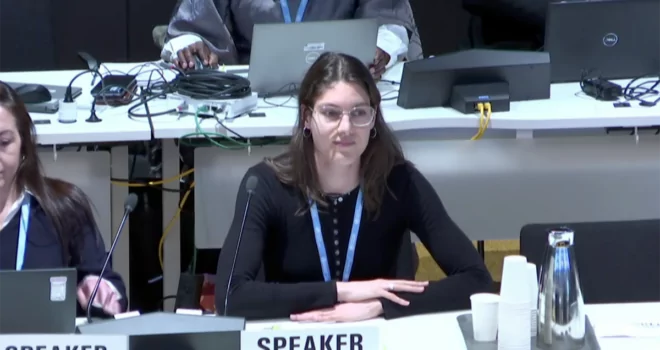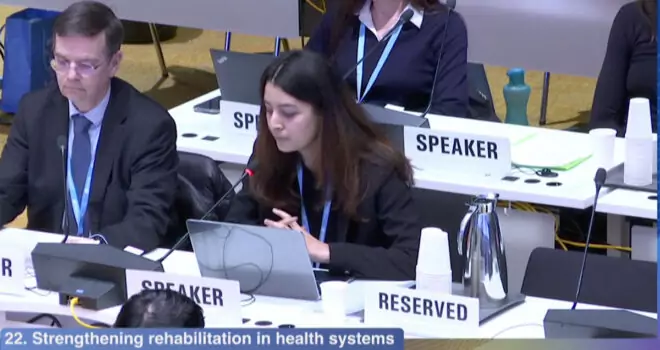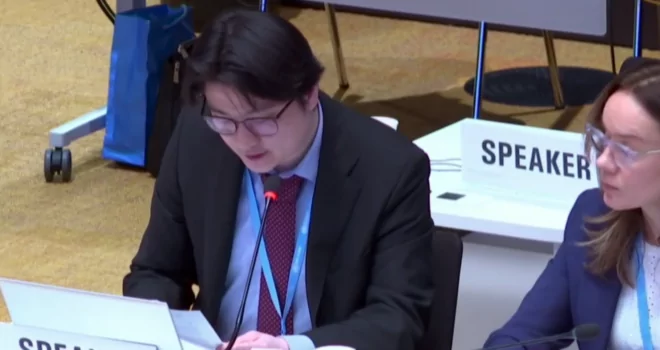This is a statement led by NCD Alliance and the World Heart Federation at the 77th World Health Assembly on Agenda item 11.2
Distinguished delegates,
We welcome the update but acknowledge the world is off track to meet the targets for NCDs and mental health conditions, and many promises made at the last HLM in 2018 will go unfulfilled.
NCDs are responsible for 41 million deaths annually, accounting for 74% of all deaths worldwide. Of those, 84% occur in people aged 30 to 70 years in low- and lower-middle-income countries. Over a million children with NCDs die each year. The burden of NCDs is expected to worsen, with 52 million lives lost annually by 2030.
Yet, the avoidable burden of morbidity, mortality, and disability due to NCDs remains one of the most underfunded health challenges of this century: only 5% of the WHO budget and less than 2% of development assistance for health are allocated to NCDs.
These figures underscores a fundamental mismatch between the needs and rights of people with NCDs and the resources provided. The impact is particularly amplified among vulnerable and under-represented populations, including children and adolescents, women and girls, older persons, people with disabilities, migrants and refugees, ethnic and racial minorities, people living with HIV, and LGBTQI+ individuals.
Since the last HLM, people with NCDs have faced disproportionate suffering and increased vulnerability due to the pandemic, conflicts, and the climate crisis.
The upcoming HLM in 2025 must deliver an honest review, make strong political commitments, and reset the NCD agenda to 2030 and beyond.
We call on Member States to:
• Establish deadlines for national cross-sectoral NCD plans with targets and indicators, in line with the NCD Global Monitoring Framework and including implementation of NCD best buys
• Commit to global NCD financing targets, cost national NCD strategies, increase domestic budgets, and strengthen preventive measures, social and financial protection
• Strengthen the healthcare workforce
• Strengthen national NCD surveillance and monitoring, ensuring data is disaggregated to inform equity-based decisions
• Align and integrate NCDs into global health and development agendas, including PHC, UHC, HIV, emergency and humanitarian settings, and climate responses.
Thank you.


